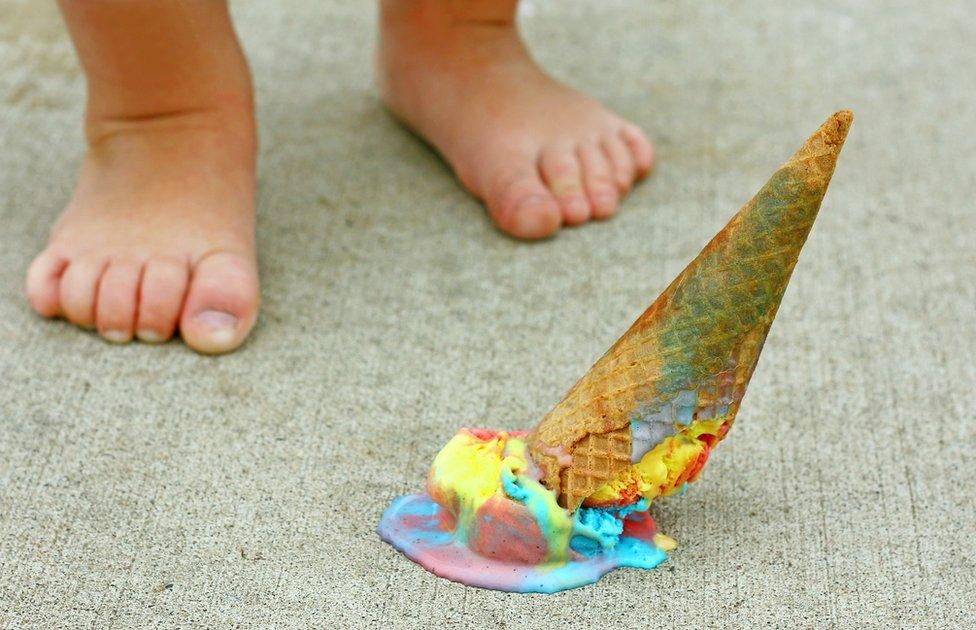Regret 'improves children's decision-making'
- Published

Experiencing regret at a young age may be important in helping children to make better decisions
Frank Sinatra, Edith Piaf, and even Robbie Williams are amongst the singers who have exhorted us not to get bogged down in regret, but could this emotion actually be beneficial for us?
According to research from Queen's University, Belfast, the answer is yes, in the case of children at least.
A study has found regret plays a "crucial role in helping children to make better decisions".
The research involved 326 Northern Ireland schoolchildren.
This study is entitled: Do children who experience regret make better decisions? A developmental study of the behavioural consequences of regret, external.
'Much-maligned emotion'
It found that by the age of six, only some children are able to experience regret, but those who do learn to make better decisions.
The research was led by Dr Aidan Feeney, a senior lecturer at Queen's School of Psychology.
"It's a much-maligned emotion but our study suggests that developing the ability to experience regret may be important," he said.
"It could have significant value to children's development because of its role in decision-making.
"We're not saying teachers and parents should deliberately expose children to serious regret.
"But showing them how things would have turned out differently if they'd made an alternative choice could benefit them."
One of the experiments had some echoes of the Deal or No Deal game show, as each child was invited to open one of two closed boxes.
Both boxes contained stickers, but one had more than the other.
The children were asked to rate their feelings and those who felt worse about having picked the box with fewest stickers were said by the researchers to have experienced regret.
They were offered exactly the same choice the next day and the study found that the children who regretted their previous decision were more likely to remember the outcome and switch to the other box that had more stickers.
"Adults know to switch their behaviour the next time when a different decision would have led to a better outcome," said Dr Feeney.

Dr Aidan Feeney from Queens University, Belfast, led the research into the influence of regret on children's decisions
"They learn not to press the snooze button on their alarm, for example, because this has made them late for work before.
"However, less is known about how and when children experience regret, and how they learn from this emotion."
'Serious consequences'
Dr Feeney said more research was needed to understand how anticipating regret influences decision-making in older children and adolescents.
"There's much concern over the choices some teenagers make, for example around sexual behaviour and alcohol," he said.
"We don't want teenagers to experience regret by making decisions with very serious consequences.
"Instead, we need to understand how learning about other people's regrets might help them anticipate feeling the emotion themselves and therefore chose more wisely," he added.
There were four experiments involved in producing the research paper.
In the first study, 78 children aged between five and nine years old took part.
On the basis of the results of that study, the researchers focused on six and seven year olds for the remaining experiments.
The children who took part were said to be from "predominately from lower-to middle-class backgrounds and of Caucasian origin".
The research was funded by the Economic and Social Research Council (ESRC), the UK's largest organisation for funding research on economic and social issues.